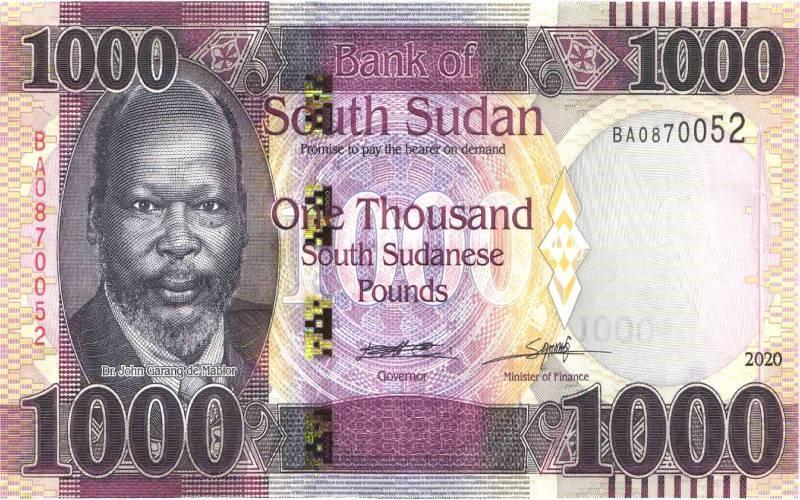Majok Deng
Africa-Press – South-Sudan. There has been a fierce debate amongst South Sudanese on social media platforms after the American media outlet, Bloomberg reported that the South Sudan government had negotiated a long-term loan facility which is backed with crude oil with a Dubai-based company. This loan facility was negotiated by the former finance minister, Dr. Bak Barnaba for the government to access a loan facility worth $12.9 billion which was spread over 20 years. This loan has a grace period of three years. This is as per a term sheet that was signed by Dr. Bak the representative of the government and Mr. Hamad Alnayan who was the company representative. This is believed to be one of the biggest oil back loans in Africa. And it has attracted a significant amount of anger from domestic subjects and the international community.
But to give a proper answer to the above question, let’s take a look at how the government budget is financed in any normal circumstances. First and foremost, in our case in South Sudan, the government finances its budget through oil and non-oil revenues. Furthermore, oil revenues constitute more than 80 percent of the government revenues and the rest come from non-oil revenues and grants. But in an event where government expenditures exceed government revenues, it has to borrow the deficit from either the domestic financial market or the external market. However, the domestic financial market is not very liquid and access to foreign capital markets was out of the equation due to tight global financial conditions which were brought by the tightening of monetary policy by central banks in advanced economies. In addition, the government could also borrow from concessional lenders or non-concessional lenders. Furthermore, the only domestic lender is the Bank of South Sudan which the government can use as a last resort if it cannot get a cheap concessionary or even more expensive non-concessionary loans. So, in an event where the government cannot get fund from concessional lenders such as the Bretton Wood Institution or even from the domestic market, it has to resort to expensive non-concessional loan. This is because the government borrowing from the central bank was inflationary and would be dangerous for the health of our economy. Therefore, the government needed to borrow from any willing creditors in order to power government expenditures. The government is currently experiencing one of the difficult financial situations since independence. For instance, teachers and doctors have not been paid since July 2023. Indeed, famous British economist john Maynard Keynes once said, “in long run, we are all dead.”
This is true for individual households. If the household’s discretionary expenditures such as children’s tuition, food, rent, fuel, etc. are more than its revenues, the head of household will have to borrow from any willing creditor in order to meet those needs. This is after the head of household has try to seek financial assistance from relatives.
Therefore, borrowing is inevitable for both the government as well as an individual household. However, the caveat is that the borrowed money ought to be spent in areas where it stimulates economy and generates high return in order to be able to make annual interest on loan payment. That being said, the government needs for loan can’t be understated considering the fact the oil revenues as a big source of government has suffered a shock emanating the fighting in the Sudan and the crisis in the red sea. Consequentially, civil servants have not been paid for good number of months and no single government project is running.
Essentially, the public dissatisfaction was not about the loan per se but the fact that 70 percent of the loan was earmarked for infrastructure. However, the issue is not that South Sudanese are against government investment in infrastructure but there is widely held belief amongst South Sudanese that the infrastructure budget goes into the pockets of few well-connected individuals. And so giving 70 per cent of the loan value to the infrastructure was like a big loss to our people.
This brings in another crucial point and that is the twin deficit of trust and information. That being said, South Sudanese have lost trust in this government due to the non-disclosure of information related to government transactions. This has increased negative perceptions about the government of South Sudan. There is seemingly a lack of information amongst government departments and this has been evidenced by many controversies fitting government agencies against each other. For example, during the infamous dredging projects, some key governments such as the Ministry of Environment and the Office of the President had denied any knowledge of the project. In this Saudi-South Sudan loan deal, some public institutions as the National Legislative Assembly have denied any knowledge of such a loan. Even though the loan was still in the negotiations stage, the Parliament should have been informed of the government’s intention to take on such a loan facility. Furthermore, the lack of defence of the former minister of finance, Dr. Bak by the incumbent minister is to my mind, inappropriate. The former minister is being attacked left, right and centre by the members of the public yet he does not have a platform to defend for himself. If Dr Bak had negotiated that loan facility with the full knowledge of the executive, then the government should come out clearly to claim ownership of the deal.
Source: The City Review South Sudan
For More News And Analysis About South-Sudan Follow Africa-Press






